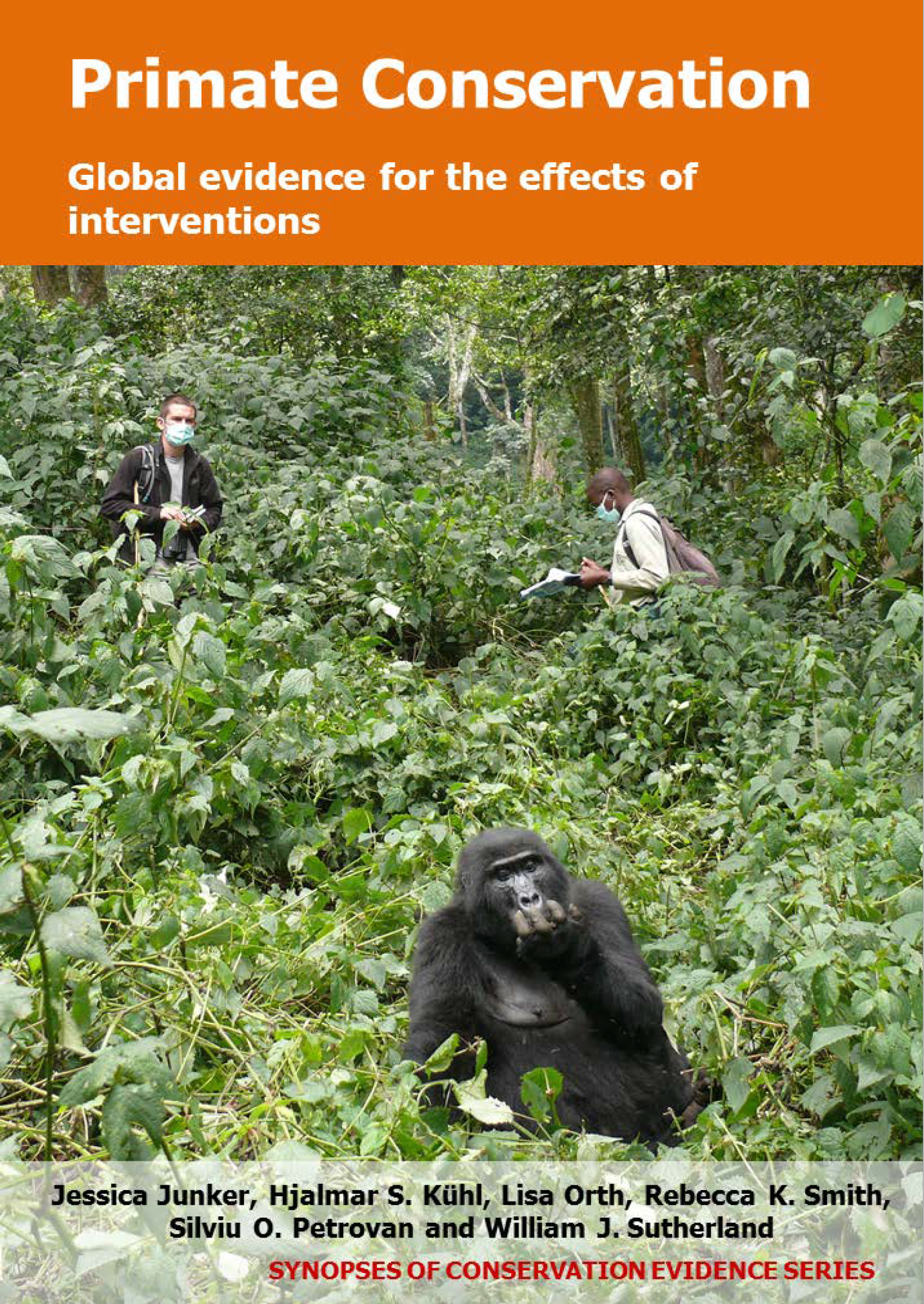Create natural habitat islands within agricultural land
-
Overall effectiveness category No evidence found (no assessment)
-
Number of studies: 0
View assessment score
Hide assessment score
How is the evidence assessed?
-
Effectiveness
not assessed -
Certainty
not assessed -
Harms
not assessed
Where has this evidence come from?
List of journals searched by synopsis
All the journals searched for all synopses
This Action forms part of the Action Synopsis:
Primate Conservation
Primate Conservation - Published 2017
Primate Synopsis





)_2023.JPG)














